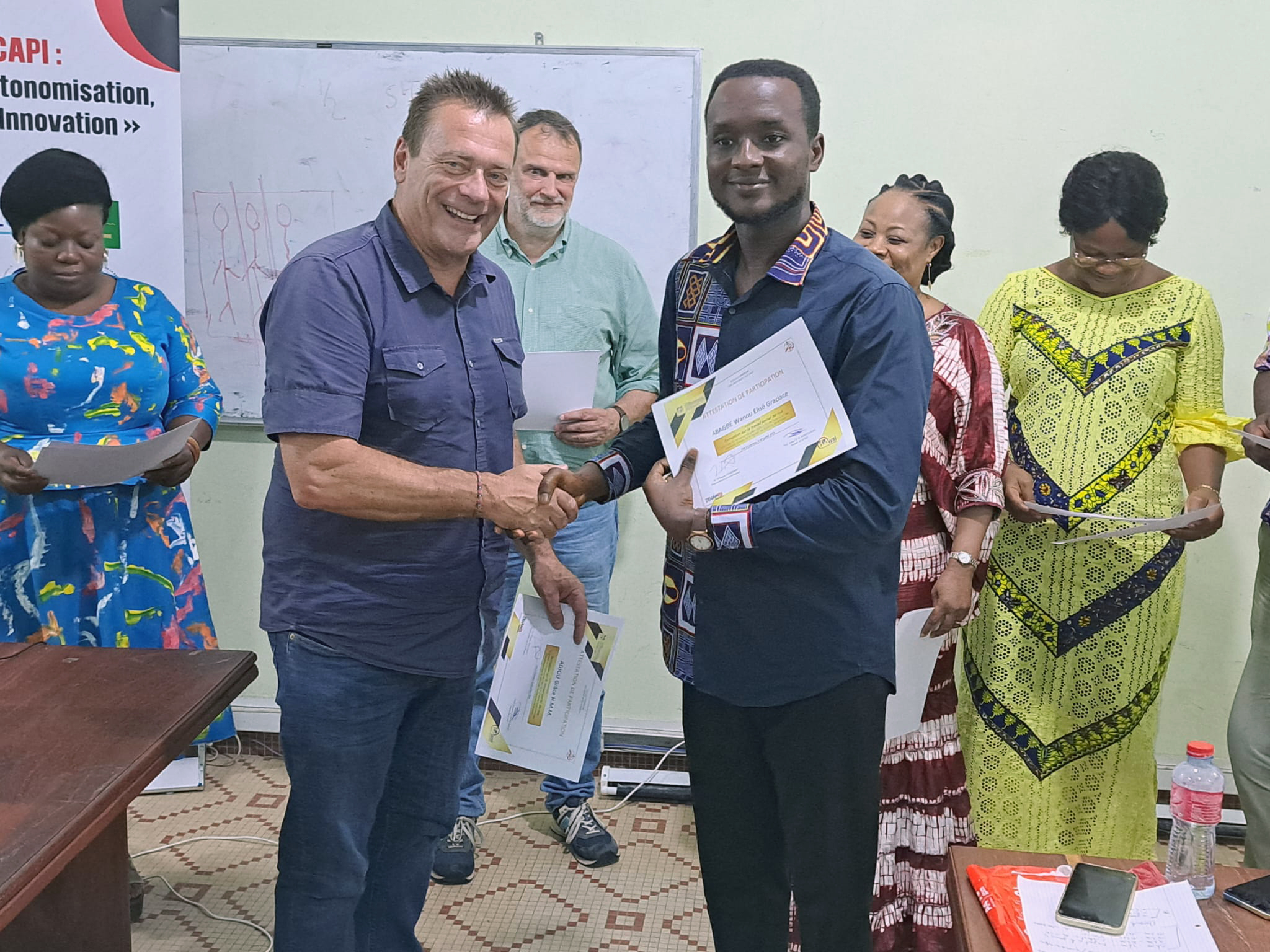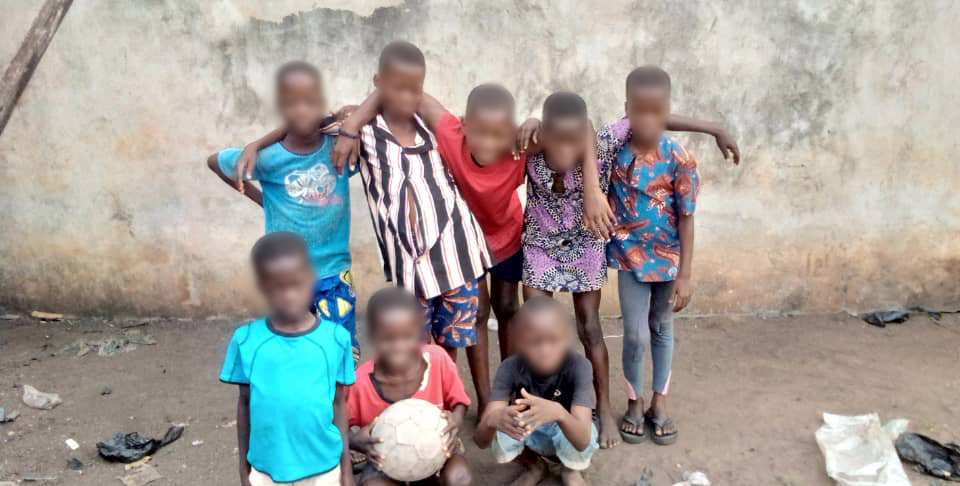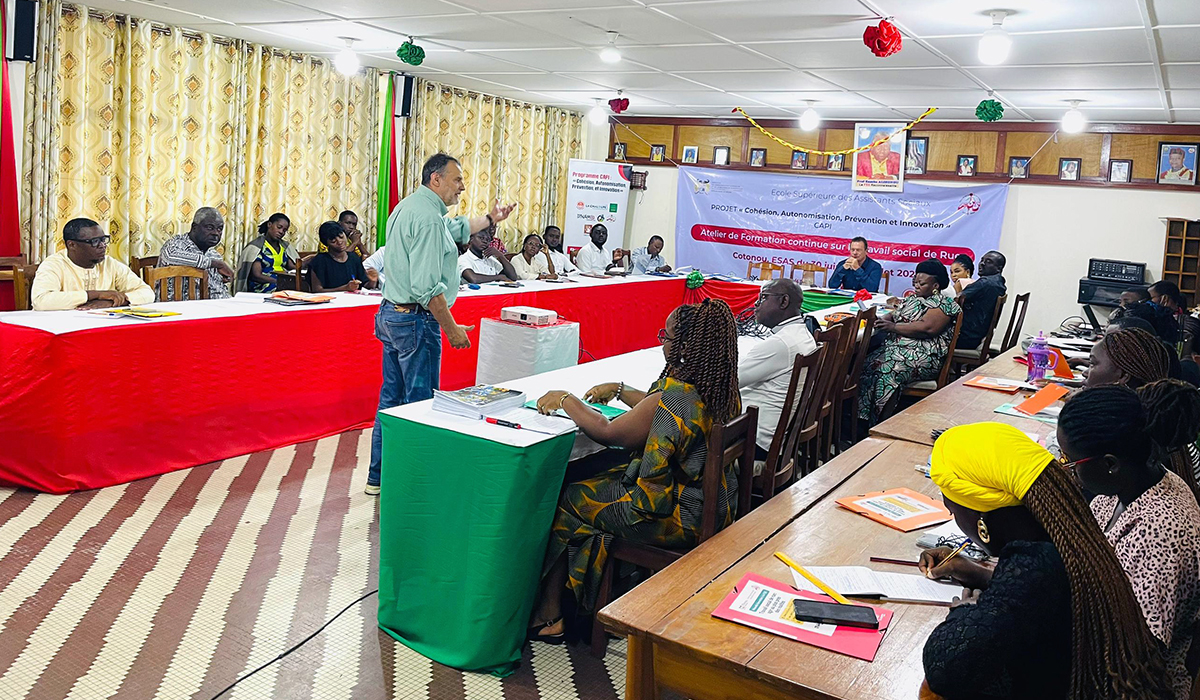Benin: knowledge sharing, strengthening the profession
In July 2025, Dynamo International and an expert in street social work methodology visited several localities across the country. The mission was part of the CAPI[1] project, funded by WBI with the support of CNCD-11.11.11. The purpose of the visit was to strengthen the platform of Beninese street social workers (SSW) and to improve mechanisms for prevention, protection, and the socio-professional integration of vulnerable children and youth. While consolidating partnerships was a key objective, the initiative primarily aimed to professionalize street social work.
In collaboration with Dynamo International, the Higher School of Social Work Assistants implemented a program on street social work methodology aimed at professionals in the field. Over the course of four days[2], this training workshop provided an opportunity to present the realities on the ground while identifying various needs.
Led by numerous speakers[3] and trainers, the meeting fostered the exchange of practices and proved rich in analysis and reflection. Bringing together participants from the Ministry of Social Affairs and partner organizations of the CAPI project, the event provided an overview of the sector and helped to strengthen already well-established foundations.
Following an initial presentation on the skills and competencies required for the profession of SSW, the screening of documentary films shed light on the history and ongoing projects of several organizations. In a participatory and engaging environment, a range of activities were organized around fieldwork, role-playing, and practical case studies based on real events or inspired by the lived experiences of street-connected children.

As for the activities already carried out by the various stakeholders involved in the CAPI project, a review was conducted, offering opportunities for reflection on future perspectives and new strategic directions. Beyond the shared commitment to creating a framework for the prevention and protection of vulnerable children and youth, strengthening professional skills remained a core ambition for all participants. As a result, starting from the next academic year, a module on street social work will be integrated into the initial training curriculum for social work assistants.

The training concluded with a field visit to stakeholders operating in the Calavi-Tokpa area, a locality located about twenty kilometers from Cotonou. The delegation was welcomed by a community mother, a SSW, members of the market committee, and around fifteen girls aged between seven and fifteen. Given the complexity of a multifaceted profession, preventive street social work cannot be carried out in isolation, synergies are essential. In Benin, particularly in rural areas, community mothers act as beacons of support for women and girls. As trusted intermediaries between communities and health services, they serve as key reference points in promoting health and well-being.
A participant in the training, the TSR from Calavi-Tokpa presented the projects run at her “baraque.” These “baraques” are spaces open six days a week, offering a welcoming environment for meeting, listening, and support. At the heart of this hub dedicated to prevention and child protection, efforts are focused on educating about risky behaviors, particularly regarding gender-based violence (GBV), as well as raising parents awareness about schooling and providing school supplies to children who work at the market with their mothers.
To increase outreach, patrols are also organized in nearby urban neighborhoods. With the help of community mothers and several families, some children are able to access vocational training programs, such as hairdressing or sewing. In cases where family reunification is difficult, children are either reintegrated directly into their families or referred to the Social Protection One-Stop Service, which then transfers them to the reception and transit center in the municipality of Allada.
The neighborhood chief and the local security officer commended the collaborative work with the social team. Since their presence in the market, they’ve observed a significant decrease in delinquent behavior among street-connected children. Whenever a child appears lost or abandoned, the SSW team steps in to ensure proper care and support. The meeting concluded with a strong recommendation: continuing these activities will require increased support.
The final stage was a visit to the municipality of Ouidah, where the SSW and the community mother were able to describe their target population. That day, the case of a girl searching for her parents was reported, and thanks to the swift action of local officials and the team, the girl was successfully reunited with her family. This is the second time that such a situation has been brought to the team’s attention by the community.
[1] The CAPI project – Cohesion, Empowerment, Prevention, and Innovation – is part of the 2024–2028 bilateral cooperation program between the Republic of Benin and the Wallonia-Brussels Federation, under Axis 4: “Youth support, socio-economic integration of vulnerable groups, and sports.”
[2] The workshop was officially launched by the Secretary General of the Faculty of Health Sciences (FHS), representing the Dean.
[3] The mission’s partners are : ESAS (Higher School of Social Work Assistants), GRES (Group of Specialized Educators of Benin), Terres Rouges asbl, RONE-RBC (Network of Non-State Rehabilitation Organizations), La Pommeraie asbl, Carrefour Jeunesse Afrique, and La Chaloupe AMO.



